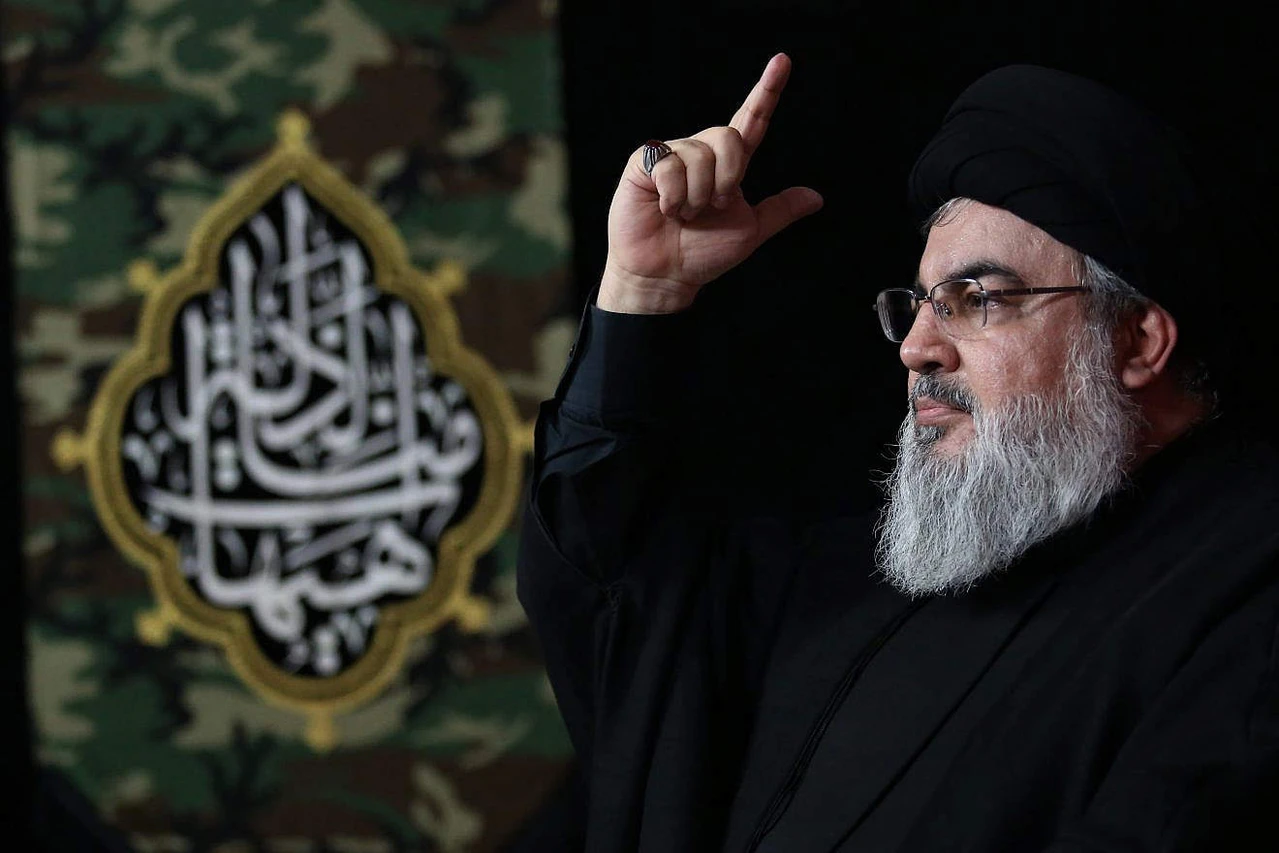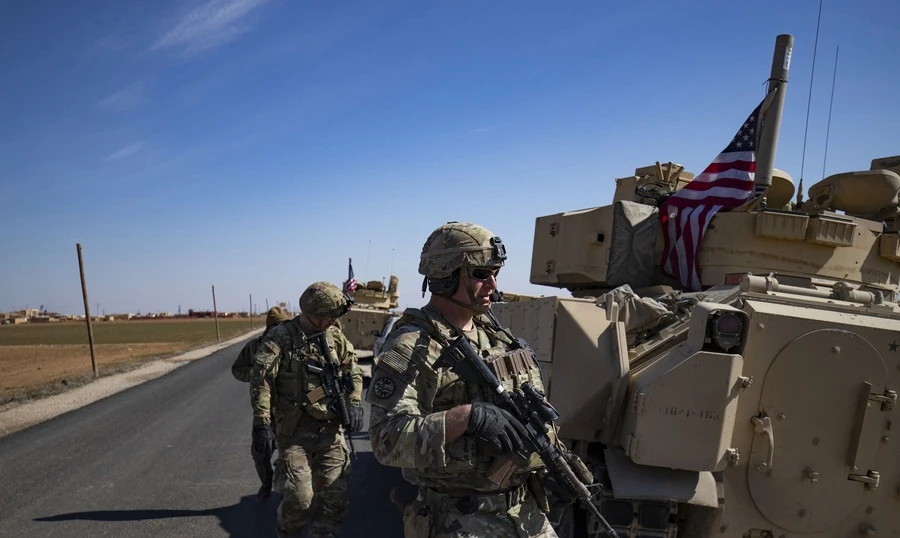War will spread to Europe if Israel enters Lebanon: Turkish security expert
 Hezbollah Secretary-General Hassan Nasrallah in Beirut on May 8, 2023. (Reuters Photo)
Hezbollah Secretary-General Hassan Nasrallah in Beirut on May 8, 2023. (Reuters Photo)
In a televised speech on Wednesday, the leader of the Iran-backed militant group Hezbollah stated that “Cyprus will be part of this war too” if it allows Israeli forces to use its airports and bases.
Hassan Nasrallah’s message is not just aimed at Greek Cyprus but also directed toward the West. With Israel taking steps beyond a permanent cease-fire and planning significant operations against Hezbollah, potentially expanding regional conflict, Nasrallah issued a warning to the West through Greek Cyprus.
Instead of discussing a permanent cease-fire, creating an atmosphere where the war might expand further creates serious regional security concerns, says Emete Gozuguzelli, a prominent figure in international relations and maritime law with experience in negotiation roles at the Ministry of Foreign Affairs.
Gozuguzelli currently advises the Inter-Parliamentary Union Presidency at the Turkish Parliament. She also teaches on Eastern Mediterranean security issues under the Swedish Parliament’s auspices and teaches at Girne American University. Additionally, Gozuguzelli serves as a consultant for the Ministry of Economy and Energy in Northern Cyprus.
Critical role of Greek Cyprus
Greek Cyprus must carefully consider Nasrallah’s belief that the support sent to Israel through its ports and British bases is more than just humanitarian aid. He takes this aid seriously and warns the international community that an unpredictable conflict zone could emerge if Israel attacks Lebanon.
Expanding conflict fronts
In his warning, Nasrallah also hinted at opening a maritime front against Israel. He suggested that Hezbollah’s attacks could involve both sea and land, indicating that Israel could face threats from multiple fronts. Nasrallah emphasized that Israel’s ongoing conflict-driven approach in Gaza, instead of seeking an end to the war, has heightened regional security risks.
Western media’s perspective
Comments in Western media suggest that Nasrallah’s message is a direct threat to Greek Cyprus. However, in the broader context, Nasrallah is signaling that if the conflict spreads to Lebanon, it will inevitably impact Europe. He argues that simply supporting Israel with weapons is not a solution; actions that do not aim for a cease-fire will only escalate the regional conflict.
Intelligence and military awareness
Nasrallah and his team are aware of military exercises, weapon supplies, and British intelligence operations in Greek Cyprus. Therefore, the West’s support for Israel could make Greek Cyprus part of the conflict zone, leading to a potential naval war in the Mediterranean.
Potential risks for Greek Cyprus
One of the countries that could be most adversely affected by this scenario is Greek Cyprus.
The previously unratified exclusive economic zone agreement between Lebanon and Greek Cyprus remains pending in the Lebanese parliament. Even though a maritime boundary exists between Lebanon and Israel, this boundary could be jeopardized by ongoing conflicts. The expansion of the conflict zone puts foreign companies drilling for oil off the coasts of Lebanon and Israel at risk, which contradicts Western interests.
Therefore, Nasrallah’s “threat” should be seen as a multi-faceted warning requiring careful consideration by the West.
Hezbollah and Iran’s influence in Cyprus
Hezbollah in Lebanon, backed by Iran, has significantly increased its influence in Cyprus. Recently, a notable trend has emerged with Iranians purchasing property and settling on both sides of the island. This development underscores the intense competition between Israel and Iran for influence in Cyprus. The full implications of this rivalry, both within Cyprus and in the broader geopolitical landscape, will become clearer in the future.
Regional and global implications
Nasrallah’s warning to the Greek Cypriot administration that supporting Israel could draw them into the conflict highlights the risk of regional tensions spreading, threatening international peace and security. In such a scenario, countries in the region and Europe could face multifaceted impacts, affecting economic stability, security, and energy supplies
Call for immediate cease-fire
Therefore, what needs to be done is to quickly establish a cease-fire, for the Israeli government to stop the war, set up a peace table and ensure the rights of the Palestinian people. Otherwise, the escalating risk will lead to a scenario involving Iran, further entangling the region and Europe.
Critical juncture
We are at a critical juncture, and this turning point is not only about ground conflicts but also the unjust and indifferent stance of the international community that has led to this situation. Ensuring international peace and security is becoming increasingly difficult.
Military and intelligence dynamics
Greek Cyprus has received significant arms support from Western states and the United States. Additionally, it’s known that the British military and intelligence support Israel through Greek Cyprus, a fact acknowledged by Hezbollah and Iranian intelligence.
Consequently, Nasrallah’s response to Israel’s efforts to spread the conflict over Lebanon will be harsher and more chaotic, making it clear that ‘if we are targets, then you all are targets.’
Potential Western militarization and instability
In response to Nasrallah’s warning, the leadership of Greek Cyprus asserts that they are not involved in the conflict and advocate for peace. However, there are concerns that Greek Cyprus could experience further militarization due to support from Western powers.
The region might see an increase in Western and American warships in the Mediterranean, leading to a more unstable period. The absence of a cease-fire and the potential for the war to expand suggest we are entering a period with more global implications.



